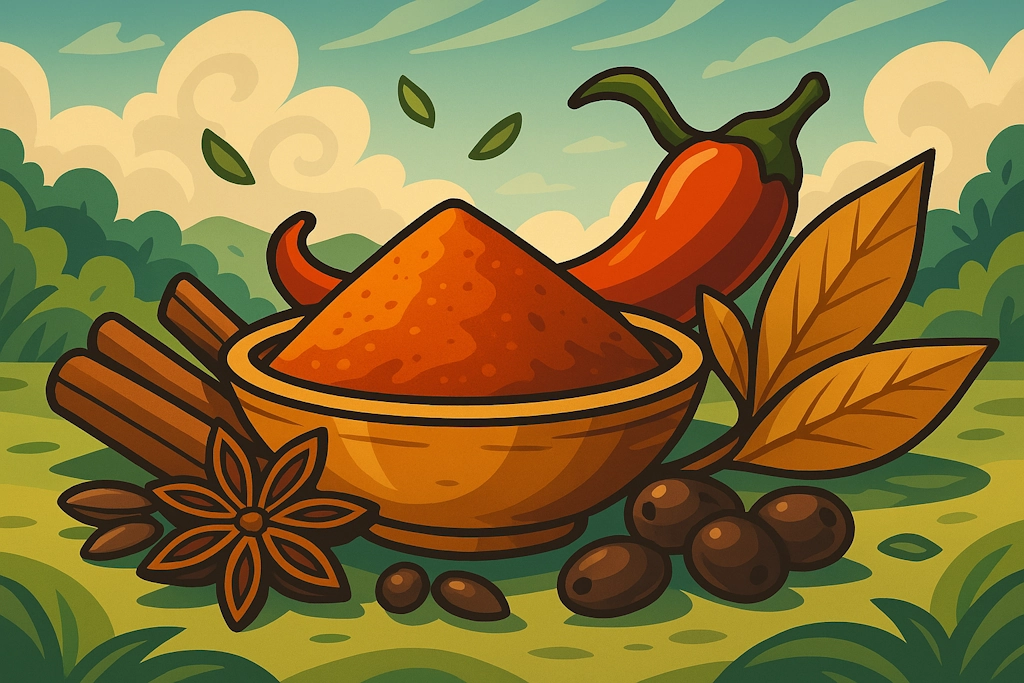Etymology and History of Spices
The word "spice" derives from the Latin "species," meaning a specific kind or type, through Old French "espice." This etymology reflects how spices were among the most specific and valuable trade goods in ancient commerce. The history of spices is deeply intertwined with human civilization, driving exploration, trade, and cultural exchange for millennia.
Classifications and Origins
Spices are categorized by their source and usage:
- Seeds: Cumin, fennel, cardamom, and black pepper (technically a berry)
- Bark: Cinnamon, cassia, and sassafras
- Roots: Turmeric, ginger, and galangal
- Flower Parts: Saffron, cloves, and star anise
Historical Significance
Famous spice-related historical events and figures:
- The Spice Routes: Ancient trade networks connecting Asia, Africa, and Europe
- Marco Polo: His journeys revolutionized European understanding of Eastern spices
- Vasco da Gama: Portuguese explorer who found the sea route to India's spice markets
- Dutch East India Company: The world's first multinational corporation, built on spice trade
Cultural Impact and Modern Usage
Spices in world cultures and contemporary society:
- Traditional Medicine: Ayurvedic use of turmeric, Chinese medicinal star anise
- Religious Significance: Frankincense in Christianity, saffron in Buddhism
- Modern Gastronomy: Essential elements in molecular gastronomy and fusion cuisine
- Popular Culture: "Spice Girls," Dune's spice melange, "Spice and Wolf" anime
Famous Spice Varieties
Renowned spices and their significance:
- Saffron: The world's most expensive spice, from crocus stamens
- Vanilla: Originally from Mexico, now primarily from Madagascar
- Grains of Paradise: Medieval Europe's substitute for black pepper
- Long Pepper: Prized in ancient Rome, predating black pepper in Europe
Etymology of Spice Names
Spice names often reflect their:
- Geographical Origin: Szechuan pepper, Jamaica pepper (allspice)
- Physical Properties: Star anise, black pepper, white pepper
- Cultural Heritage: Five-spice powder, Ras el hanout ("head of the shop")
- Historical Usage: Queen Anne's lace, monk's pepper
Linguistic Impact
Spice-related phrases in language:
- English: "Spice up your life," "variety is the spice of life"
- French: "Mettre son grain de sel" (to add one's spice/opinion)
- Hindi: "Masaledar" (spicy, also meaning entertaining)
The world of spices represents a fascinating intersection of botany, commerce, culture, and cuisine. From ancient trade routes to modern molecular gastronomy, spices continue to enhance our culinary experiences and cultural exchanges, while their names preserve rich historical and linguistic heritage.
